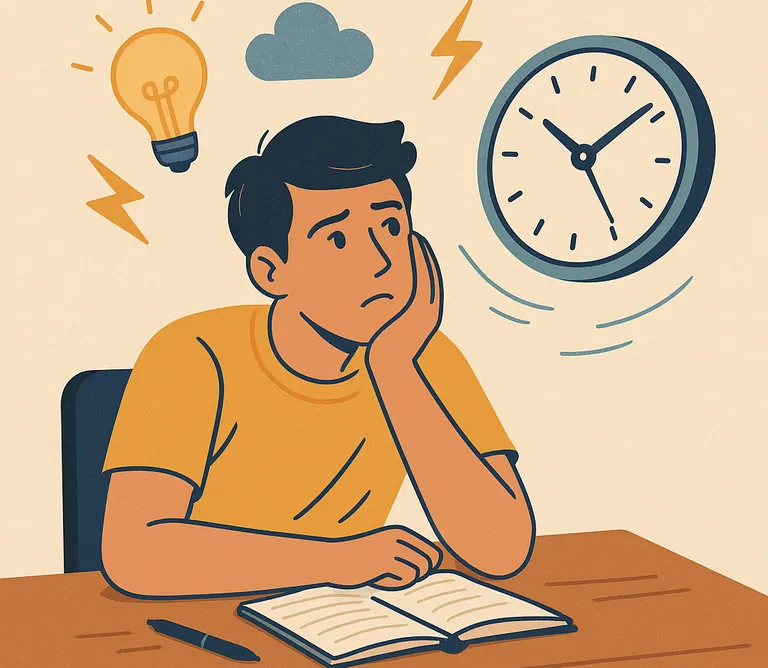We’ve all done it. You sit down to start a task, then suddenly you’re checking emails, scrolling social media, or deep-cleaning your fridge. That frustrating gap between intention and action? That’s procrastination — and it’s more than just poor time management.
In this article, we’ll explore the science behind procrastination, why it affects even high-achievers, and how you can break the cycle to boost productivity and peace of mind.
What Is Procrastination, Really?
Procrastination is the voluntary delay of an intended task despite knowing it will lead to negative consequences. It’s not about laziness — in fact, it’s often rooted in:
- Fear of failure
- Perfectionism
- Low self-confidence
- Emotional regulation issues
In short, procrastination is a coping mechanism, not a character flaw.
The Brain Science Behind Procrastination
At its core, procrastination is a battle between the limbic system (emotions) and the prefrontal cortex (logic and planning).
When a task feels boring, overwhelming, or emotionally uncomfortable, your brain chooses a short-term mood boost (like watching videos or cleaning) over the long-term reward of finishing the task.
This leads to:
- Chronic stress
- Lower self-esteem
- Reduced performance and satisfaction
Common Procrastination Triggers
Recognizing what causes your procrastination is the first step to fixing it. Some common triggers include:
- Ambiguous or unstructured tasks
- Fear of judgment or not doing it perfectly
- Low energy or burnout
- Distractions and digital overload
How to Overcome Procrastination
1. Break It Down
Big tasks feel intimidating. Break them into micro-steps and celebrate small wins.
2. Time-Block Your Day
Use the Pomodoro Technique (25-minute sprints with 5-minute breaks) to stay focused and avoid burnout.
3. Tackle the Hardest Task First (Eat That Frog!)
Your willpower is strongest in the morning. Use it to handle the most difficult task early.
4. Remove Distractions
Silence notifications, use website blockers, or change your environment to increase focus.
5. Practice Self-Compassion
Beating yourself up makes it worse. Acknowledge your feelings and take action anyway.
When Procrastination Becomes a Deeper Issue
Occasional delays are normal. But if procrastination is affecting your health, job, or relationships, you may benefit from:
- Talking to a mental health professional
- Cognitive Behavioral Therapy (CBT)
- Journaling or coaching for emotional clarity
Final Thoughts
Procrastination isn’t a moral failure — it’s a signal. A sign that something about the task (or your current emotional state) needs attention.
By understanding the psychological roots of procrastination and using simple, science-backed strategies, you can reclaim your time, energy, and peace of mind.
Remember: the goal isn’t perfection. It’s progress. One step at a time. 🧠⏳
By ✍️ Tammy Castillo - MicuPost Team
Sources:



